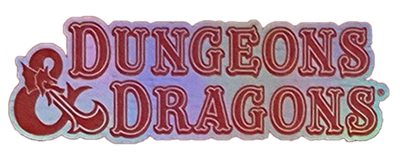The Empire System for Legend of the Seven
Legend of the Seven is ostensibly about the adventures of the emperor and his group of loyal officers, rather than necessarily be about state craft and such. As such, the system here is meant to be a light management system that gives the players and GM some level of background to run with and at their choosing, enjoy the benefits of being in a higher position.
Basic Concept
The empire will have hit points, general alignment trends, beliefs, skills, factions and assets as it's basic stat block.
The hit points primarily represents the empire's cohesion and strength of the sovereignty. That is, when the empire starts getting invaded or hit by calamities, it's power to enforce it's rule begins to weaken. Upon hitting 0, the empire crumples and imperial house that was is no more. the players, at this point, become effectively exiled nobles robbed of their land.
Unlike a normal character though, the empire does not have levels. Rather, all of it's stats are modified based on the assets/factions that it controls at the time.
Also, unlike normal characters, an empire is not limited in the number of beliefs it can hold. Sometimes, it can even hold beliefs that blatantly contradict each other, representing the battle of cultural values within the society.
All of this is managed through the factions and assets. In essence, the empire will be an amalgamation of all of it's assets and factions put together.
Each faction will have the same stats as the empire but on a much smaller scale.
Each Asset will have the following stats: Stat Mod, Upkeep, Owned By
i.e. An empire might have the following stats
HP: 7 General Alignment: LG Beliefs: - The empire's strength lies in it's military, as such I will create a military structure the size of which the world has not imagined. - The empire's strength lies in it's magic dominance, thus I will create a magic institute for spell research. - The empire must expand it's territory and conquer new lands Skills: Military Tech: 1 Arcane Tech: 1 Gather Info: 1 Knowledge (Nobility): 1 Knowledge (History): 1 Economy: 1
Factions: Imperial House (Dominant Rule) Mercenary Warriors Mage Guild Sewer Rogues
Assets: Imperial Palace
A faction would in turn have stats like this Imperial House HP: 3 General Alignment: LG Beliefs: - The empire must expand it's territory and conquer new lands Skills: Knowledge (Nobility): 1 Knowledge (History): 1 Economy: 1
An Asset would have a stat block like so: Imperial Palace Stat Mod: +1 Diplomacy check for the imperial house when done in palace Upkeep: Economy -1
Figuring the Imperial stat block
You might have noticed by now that the skills owned by the Imperial house is also shared by the empire itself. The reason here is because the empire always inherits the skill sets that a faction can provide.
Assets are generally not added right into the stat block as their effects are not as static and tend to be a tad more situational.
Note that not all stats stack. In the case of all mental stat based skills you simply take the faction with the highest skill. Though, factions can always provide synergies in the form of "aid others" actions.
However, HP and economics are always added together.
Factions
Factions represent the major power bases within the empire and it is through the support of these groups that you can manage your kingdom.
Take note, not all factions will contribute to the empire's stat block. This is a matter of allegiance. A faction that is not loyal to the empire and does not give it's service to the empire's disposal does not contribute to the stat block in anyway unless a special situation warrants it. (i.e. lending hand... for a price, perhaps) The moment a faction is added to the stat block, it is assumed that said faction is by de facto under the empire's full control, regardless of the power structure. This justification needs to be established during play. Thus, having the Mercenary Warriors Guild under the empire's stat block might be simply an allied arrangement in game, but as far as the Empire is concerned, they are now an asset the Empire can tap for resources.
At the beginning of game, the empire always starts with at least the Imperial House under it's control, and when the Imperial House falls, another faction must then step in to take over the leadership, thereby becoming the new Imperial House.
Assets
Assets, as state above, are not organizations of people, but simply physical things that the empire owns which helps the empire in some specific way. Assets will always incur an upkeep of some kind. Failure to pay for the upkeep means the loss of the asset. (And if said asset is important enough, the faction that owns it.)
Performing imperial action
Every session is followed by an Empire Action phase. During this phase, the imperial house may take one single action, and every activated (more on that later) non-allied faction can also take a single action during that phase. In order to perform the action at the Empire Action phase, you must have spent some game time actually establishing how you go about doing so and how it transpires. The final result, of course, don't have to be played out.
1. activate
Activating is done to other factions that have not yet enter play. While they might have been acting in the background previously, for the purposes of the game, they have effectively not entered play at all. Activating them means that you basically have alerted yourself to their presence, and the players from that point on can take action for or against that faction.
2. attack a faction.
Attacking a faction is where the empire, either through force or through subterfuge, endeavors to destroy the cohesion and structure of another faction.
<more on this later, must mull>
